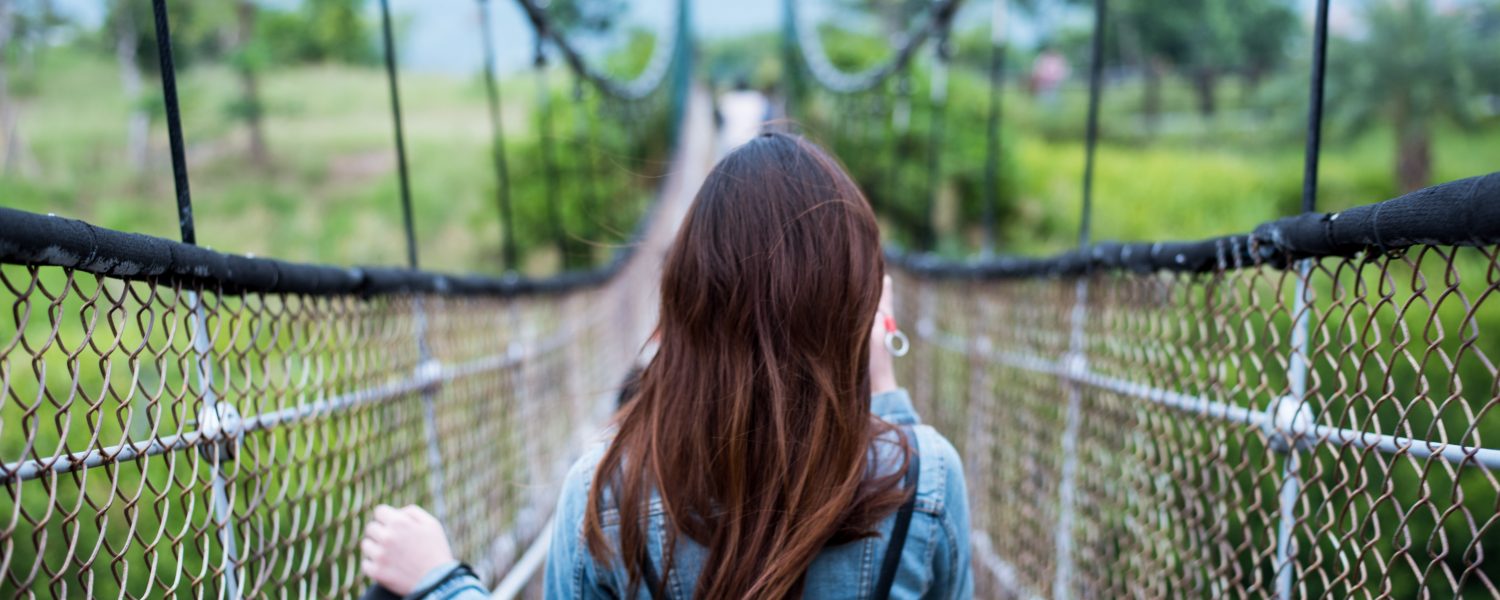Through studying initiation rites, the anthropologist Arnold van Gennep[1] identified three stages, which offer us a useful structure:
1. Rites of relinquishment
To travel forward unencumbered we need to let go of old activities, habits and rituals, which might not be intrinsically problematic but are no longer helpful.
- How might we creatively mark the costliness of this process? Would rituals of lament be appropriate as a church community?
2. Liminal rites
This stage of transformation, or process of ‘becoming’, to quote the psychotherapist Carl Rogers,[2] enables new abilities and possibilities. Our modernist culture values rationality, productivity and individuality; whereas liminality rebalances these with intuition, creativity and collaboration.
Rohr emphasises the need for vulnerability in order to be successful.[3] ‘We actually need to fail abruptly and deliberately falter to understand other dimensions of life. We need to be silent instead of speaking, experience emptiness instead of fullness, anonymity instead of persona, and pennilessness instead of plenty. In liminal space, we descend and intentionally do not come back out or up immediately.’
Unsurprisingly, both psychotherapy and initiation rites require an experienced guide and agreed outcomes. For ourselves:
- Do we give sufficient priority to our personal transformation?
- What activities could help us inhabit liminal space? Perhaps silence, attention to our dreams, contemplation, art or journaling.
- Have we a spiritual director or soul friend to support and guide us?
Regarding systemic transformation, the Massachusetts Institute of Technology proposes a programme, U-Lab,[4] to create a more sustainable global economy and society, given that historic approaches have failed. The three-step approach involves observing the problem from every angle, before retreating and reflecting and finally acting quickly through a series of iterative steps.
The process places significance on the individual in the system; they need an open mind to suspend judgement, a compassionate heart to redirect their gaze and a willingness to let the old go and the new emerge.
The process recognises the importance of spiritual encounter in the ‘presencing’ step; a spiritual space where new possibilities can emerge before the way forward is crystallised.
A community of voices, all with an agreed goal that uses the thinking of head and heart and seeks another’s voice – this is liminal space at the centre of the change process!
Could this approach help the local and national Church in its decision-making? What do we forfeit if we simply sandwich the work of problem identification, clarification, option appraisal and action in intercessory prayer?
- How might our church find overtly seeking liminal place helpful? How might the voice of the wider community contribute to the process?
- How will we move forward as the body of Christ, through intuiting and acting on God’s plans for us?
3. Post-liminal integration
With societal change, unlike initiation rites, there is no external group waiting to welcome our transformed selves. Good leadership and prayerfulness is critical for us to stay safe and on track.
As Christians our journey of faith never ends; Brother Roger of Taizé called us to view all structures (physical and relational) as provisional; to be abandoned if no longer helpful. Our stability comes through our relationship with God alone.
- What role should liminal space play in my ongoing life and that of my community?
The Irish monks set sail in their coracles trusting God to guide their journeying, with the clear aim to spread the gospel. May we similarly journey in faith and trust.
You can read Part 1 of this reflection here and find the rest of our Virtual Wellbeing series here
Michèle Hampson is an honorary adult psychiatrist and priest in the Diocese of Southwell and Nottingham. St Luke’s is very grateful for her regular contributions to this series of reflections.
Need more?
If reading this has led you to want to seek additional support or signposting, please contact:
- the person in your diocese responsible for clergy wellbeing, or
- St Luke’s click here or call 020 7898 1700
[1] Arnold van Gennep, Rites of Passage. Trans. Monika Vizedom and Gabrielle L. Caffee, (University of Chicago Press, Chicago, 1960).
[2] Carl R. Rogers, On becoming a person (extracts) 1961. Accessed at http://panarchy.org/rogers/person.htmls
[3] https://cac.org/between-two-worlds-2020-04-26/
[4] Otto Scharmer at https://www.edx.org/course/ulab-leading-change-in-times-of-disruption


